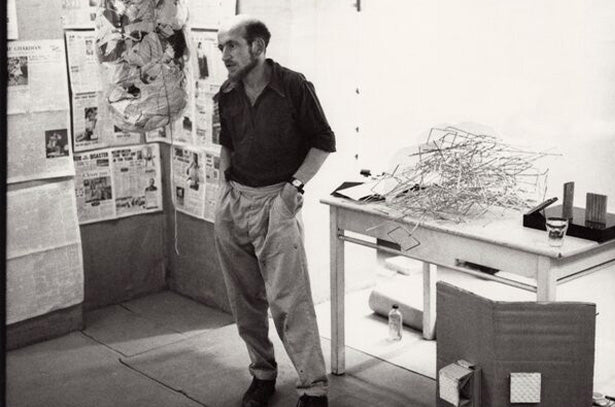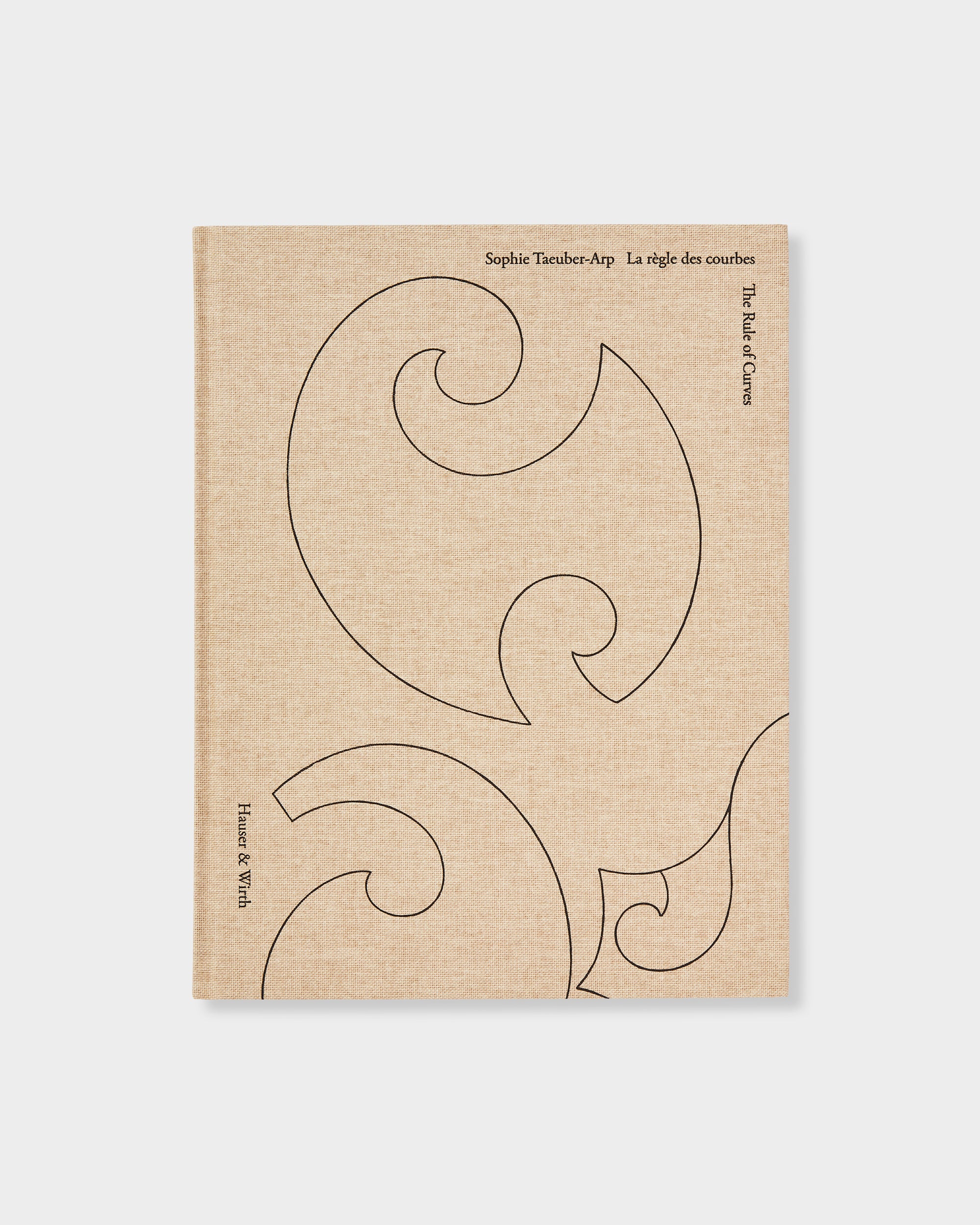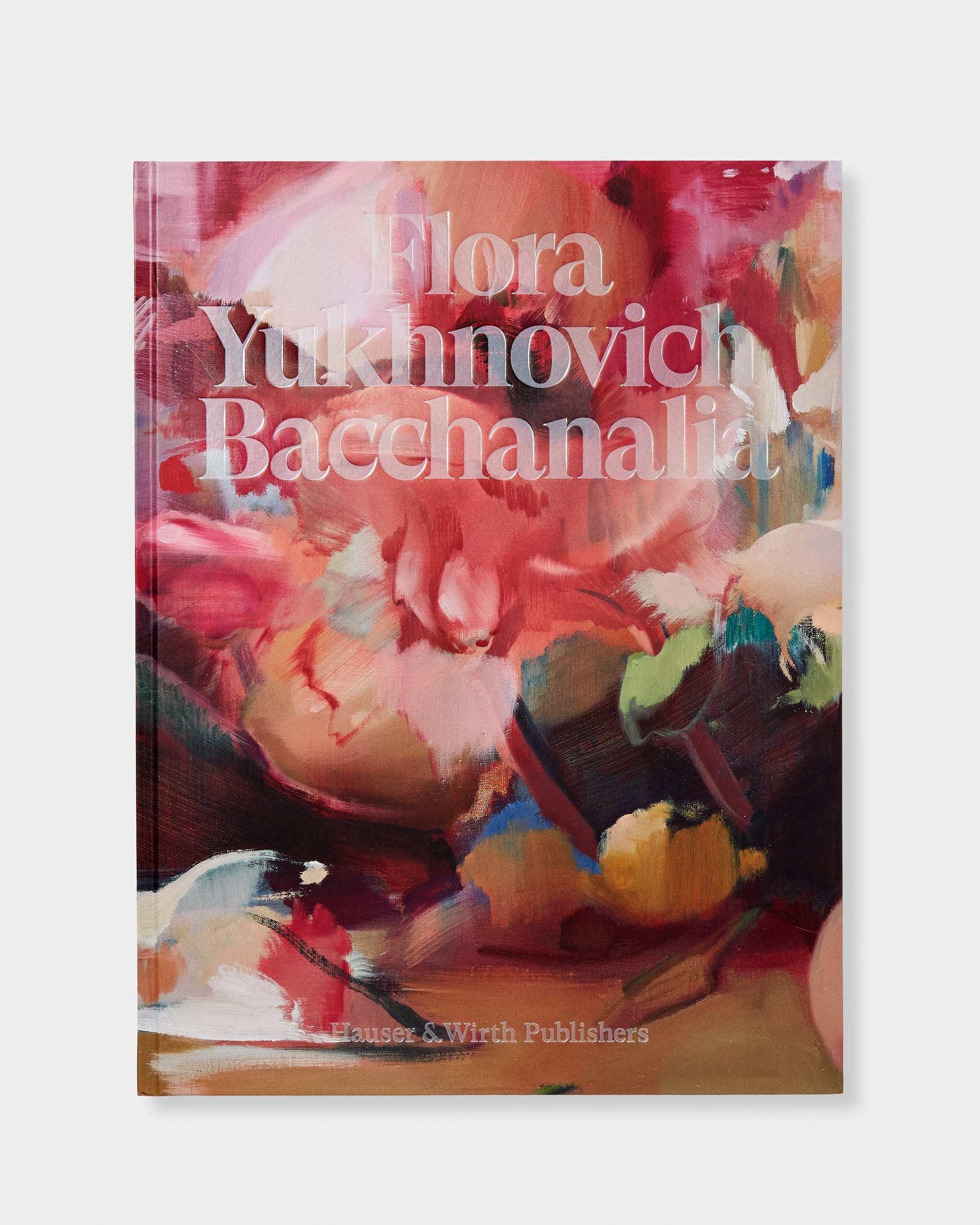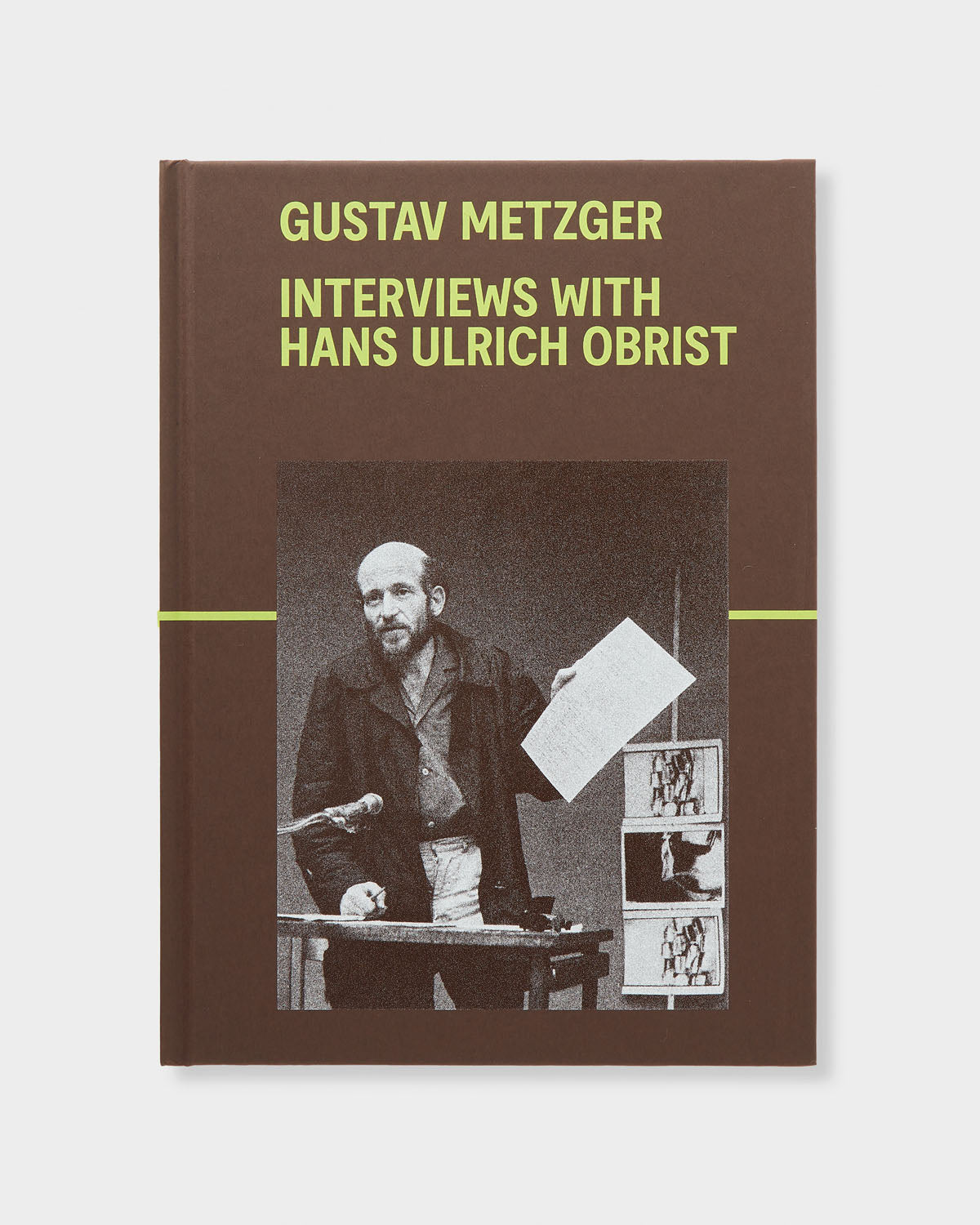
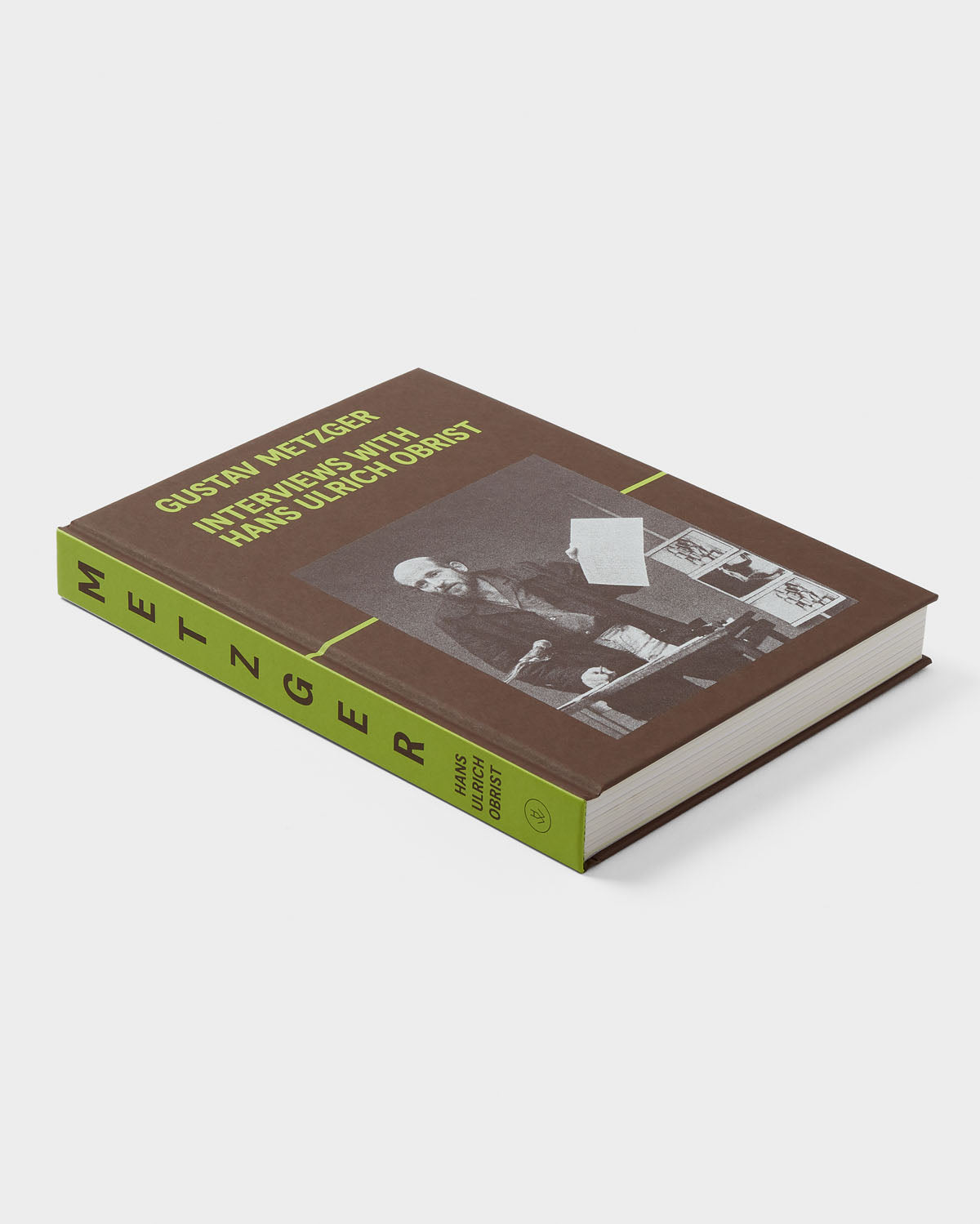
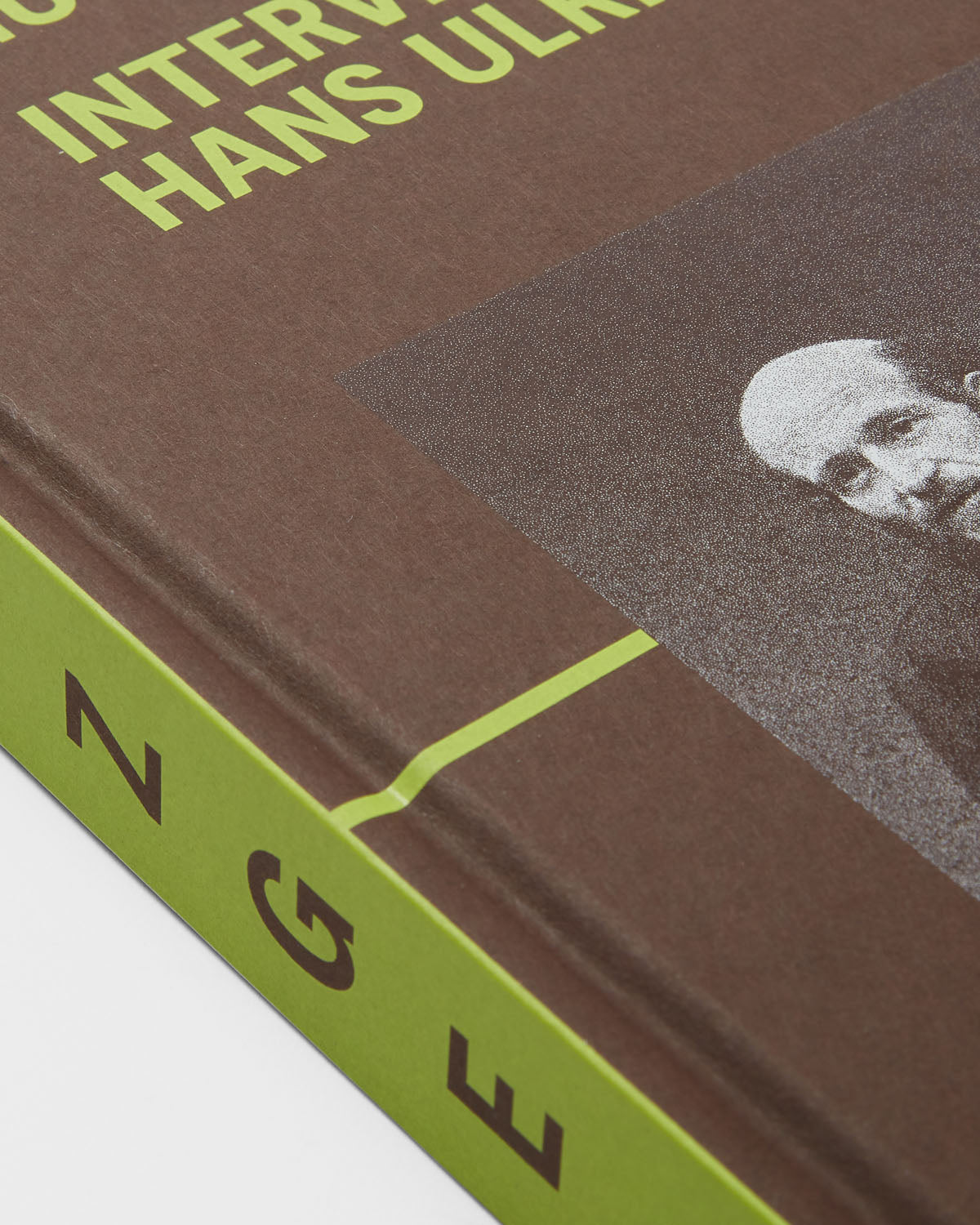
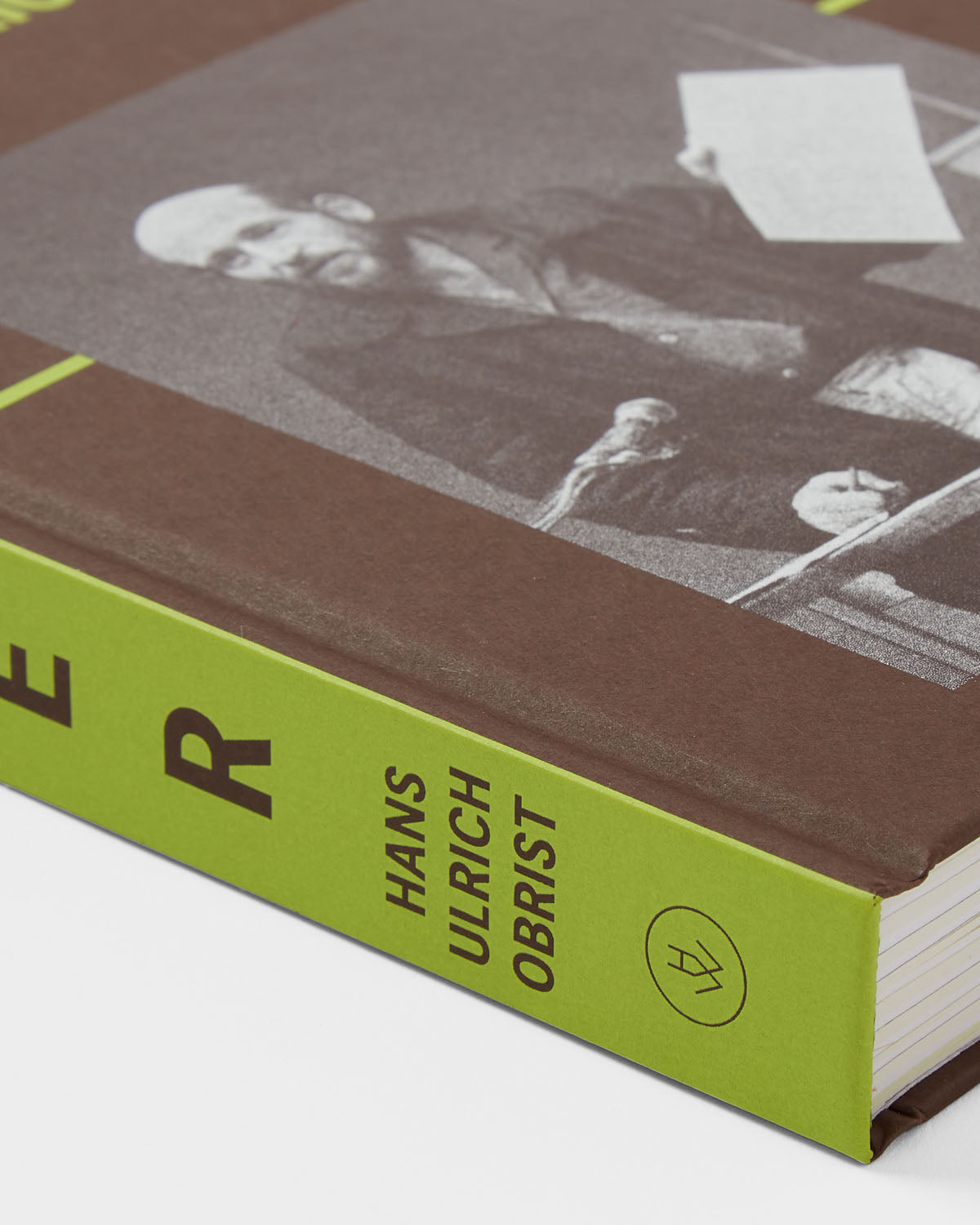

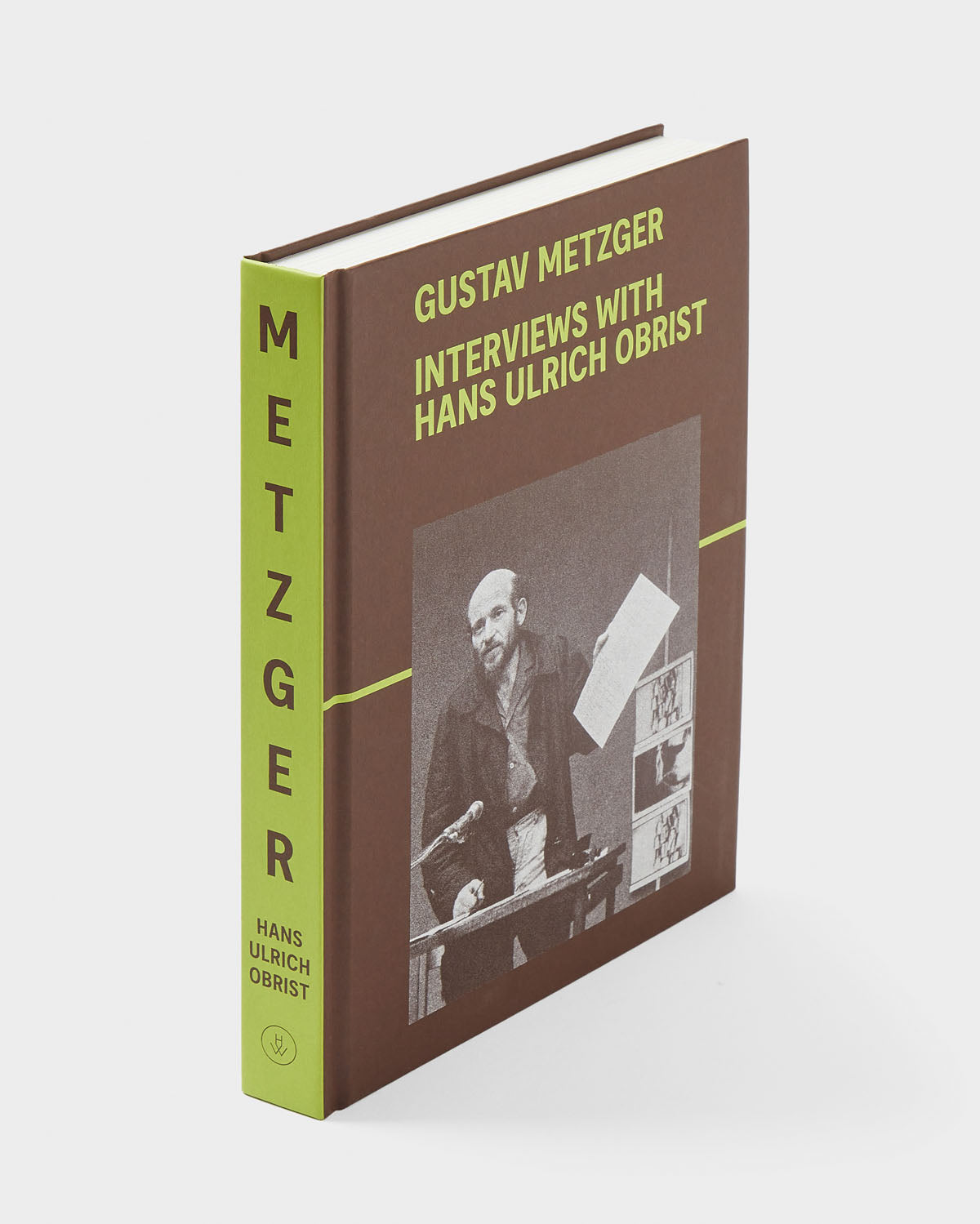
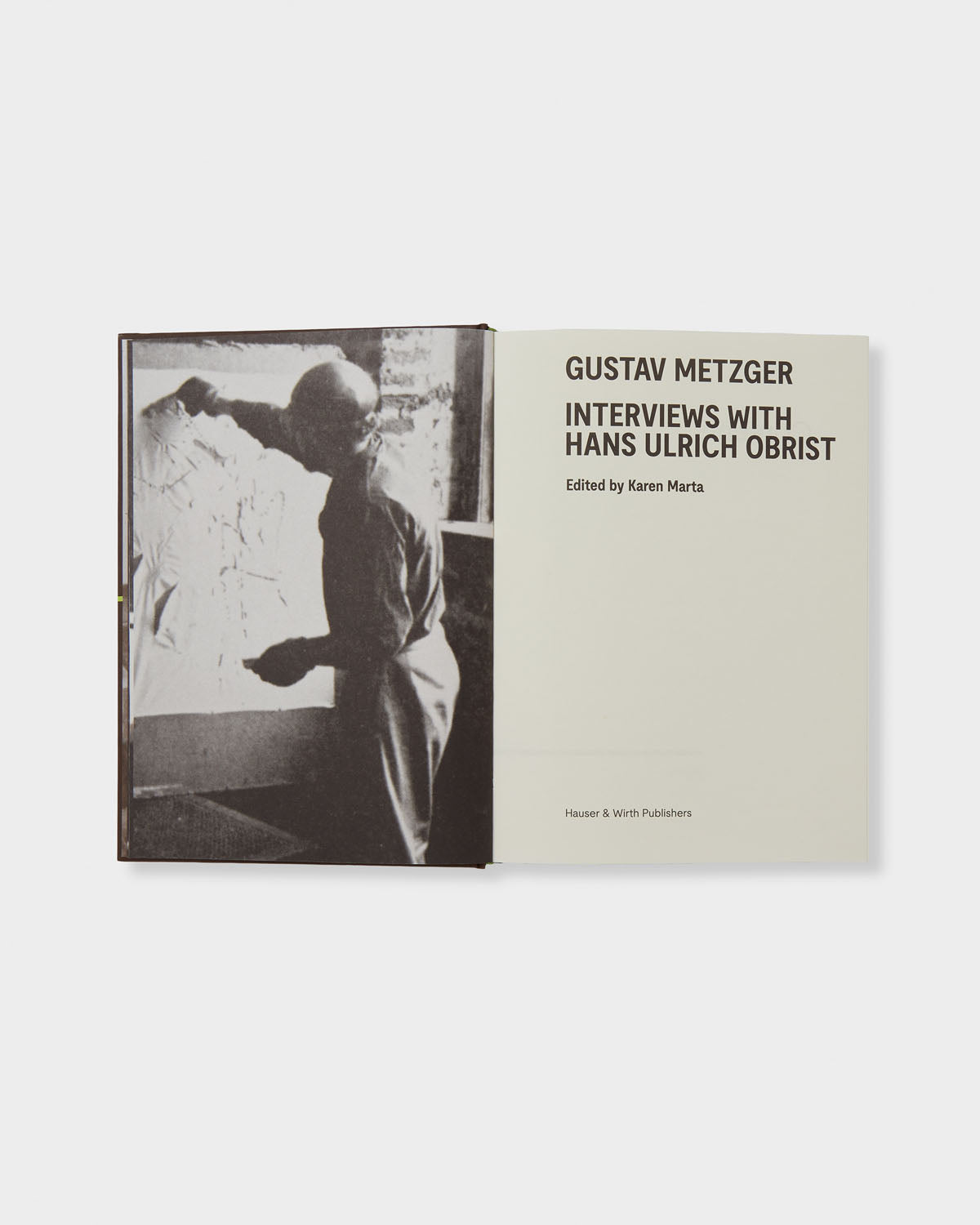
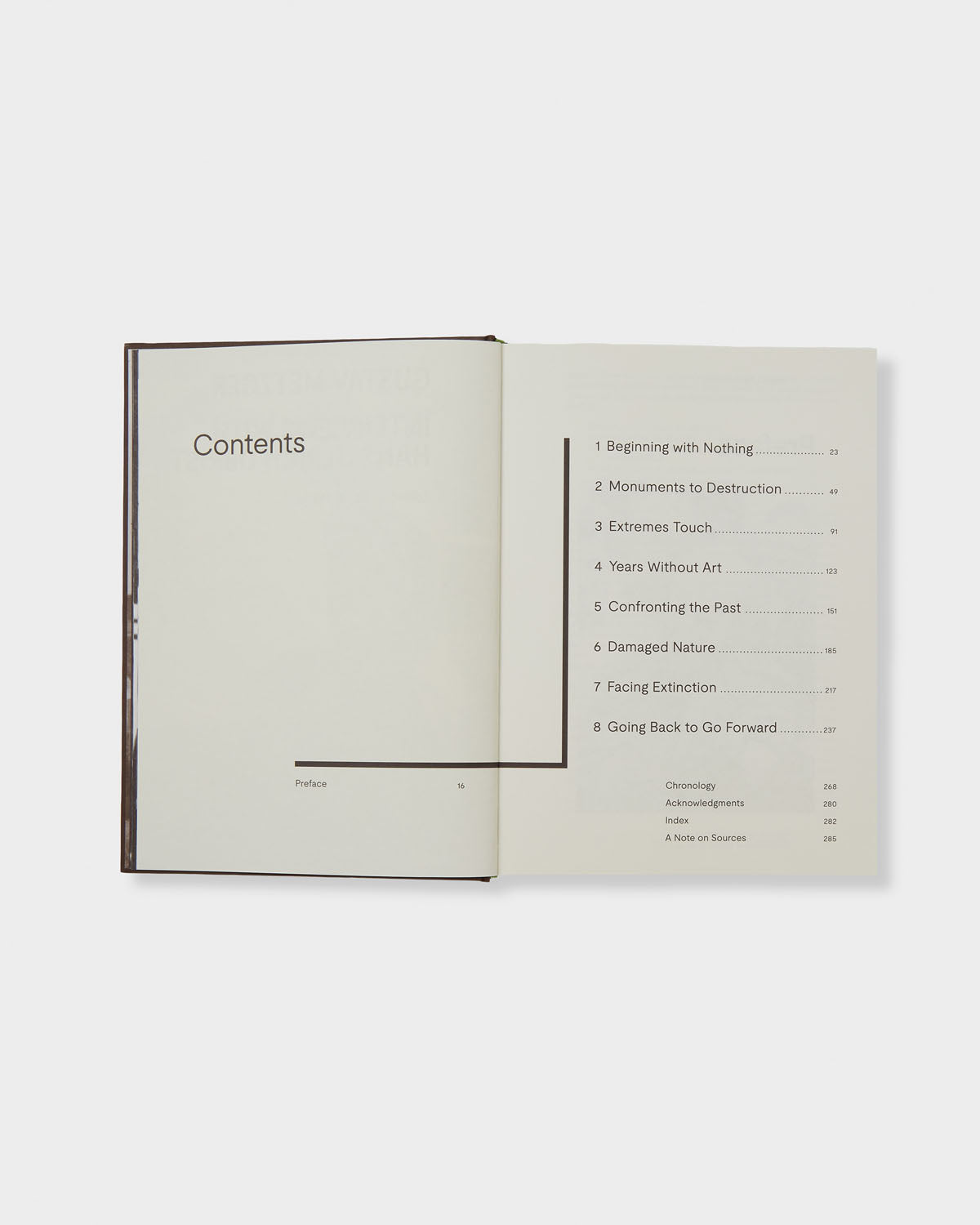
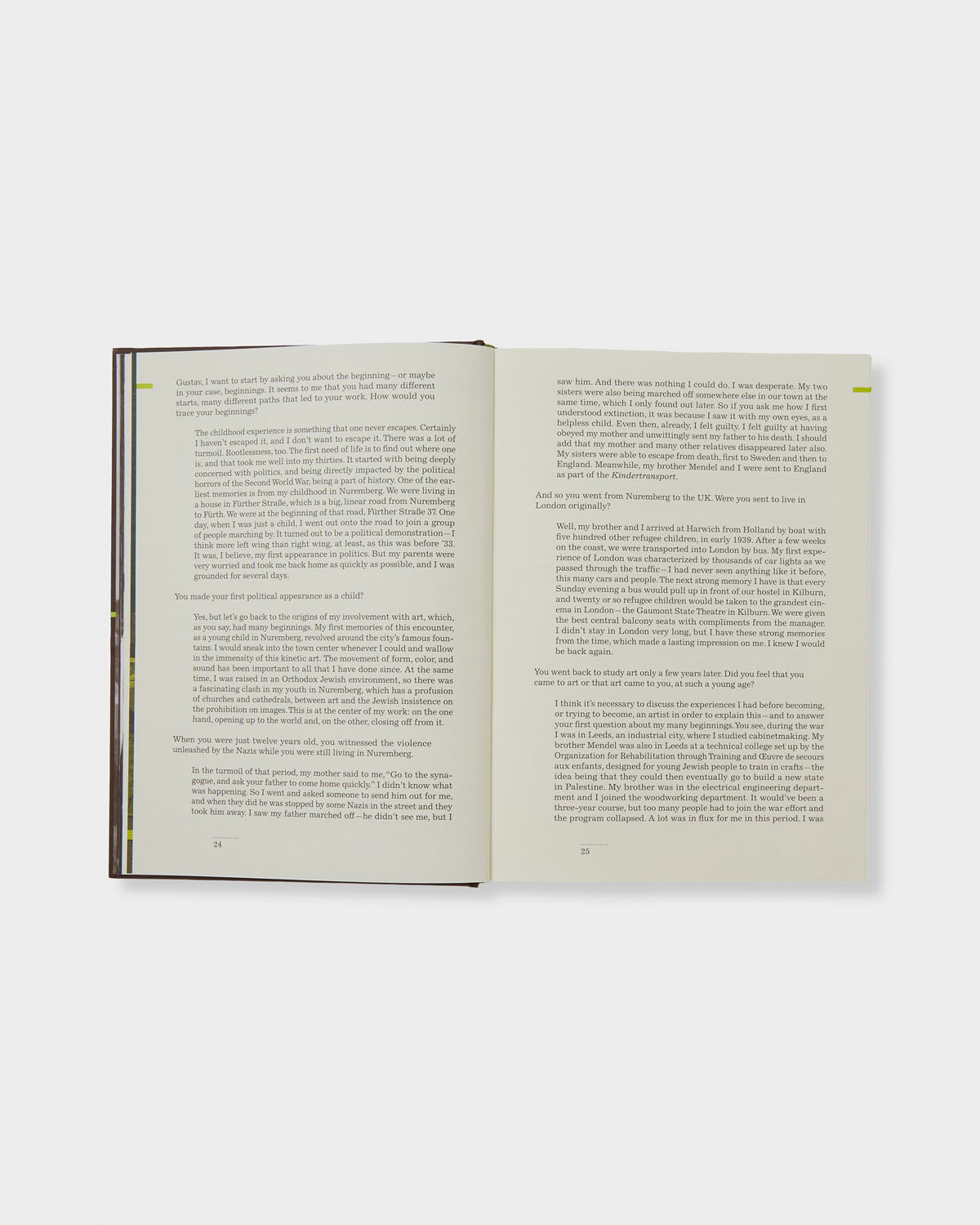
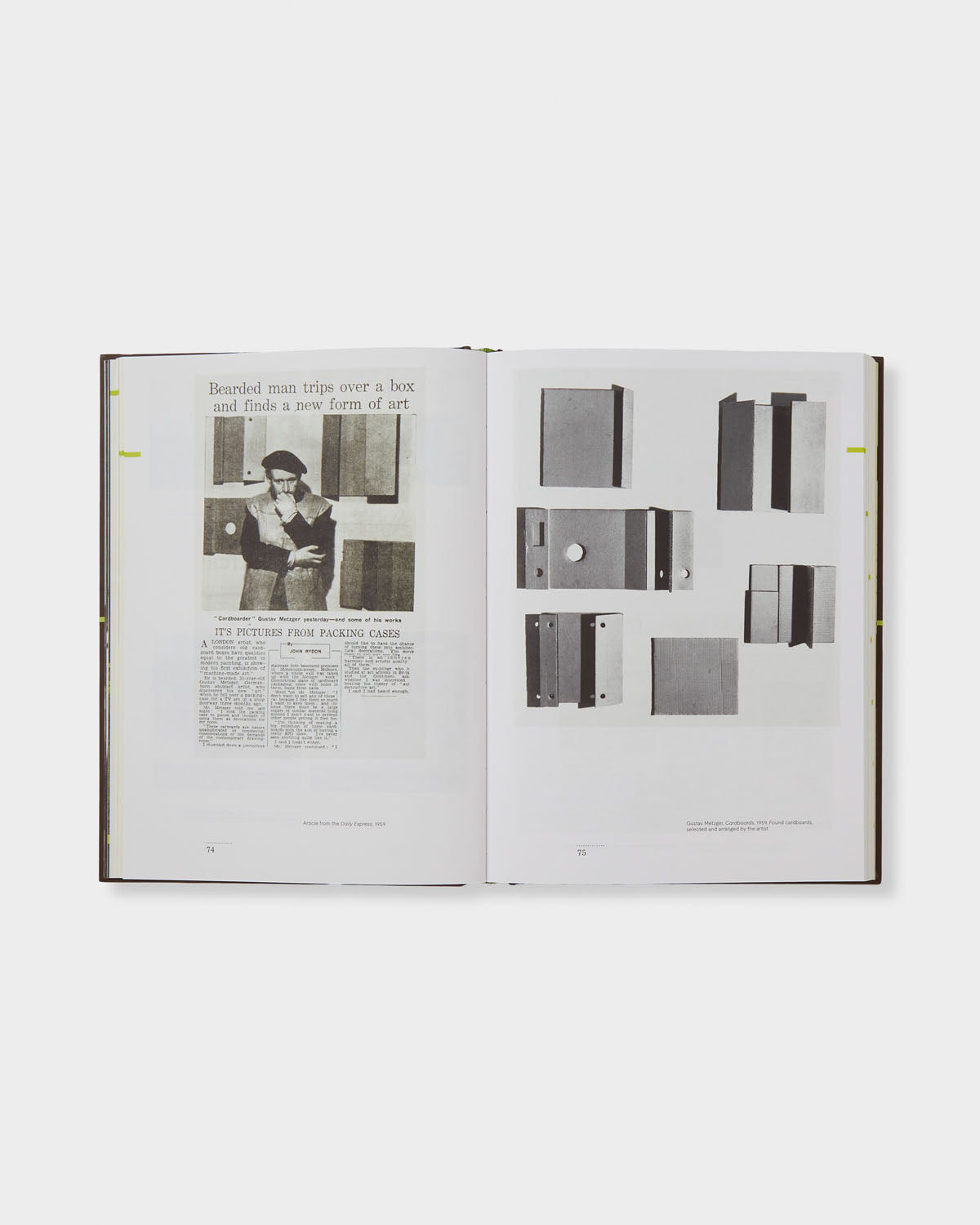
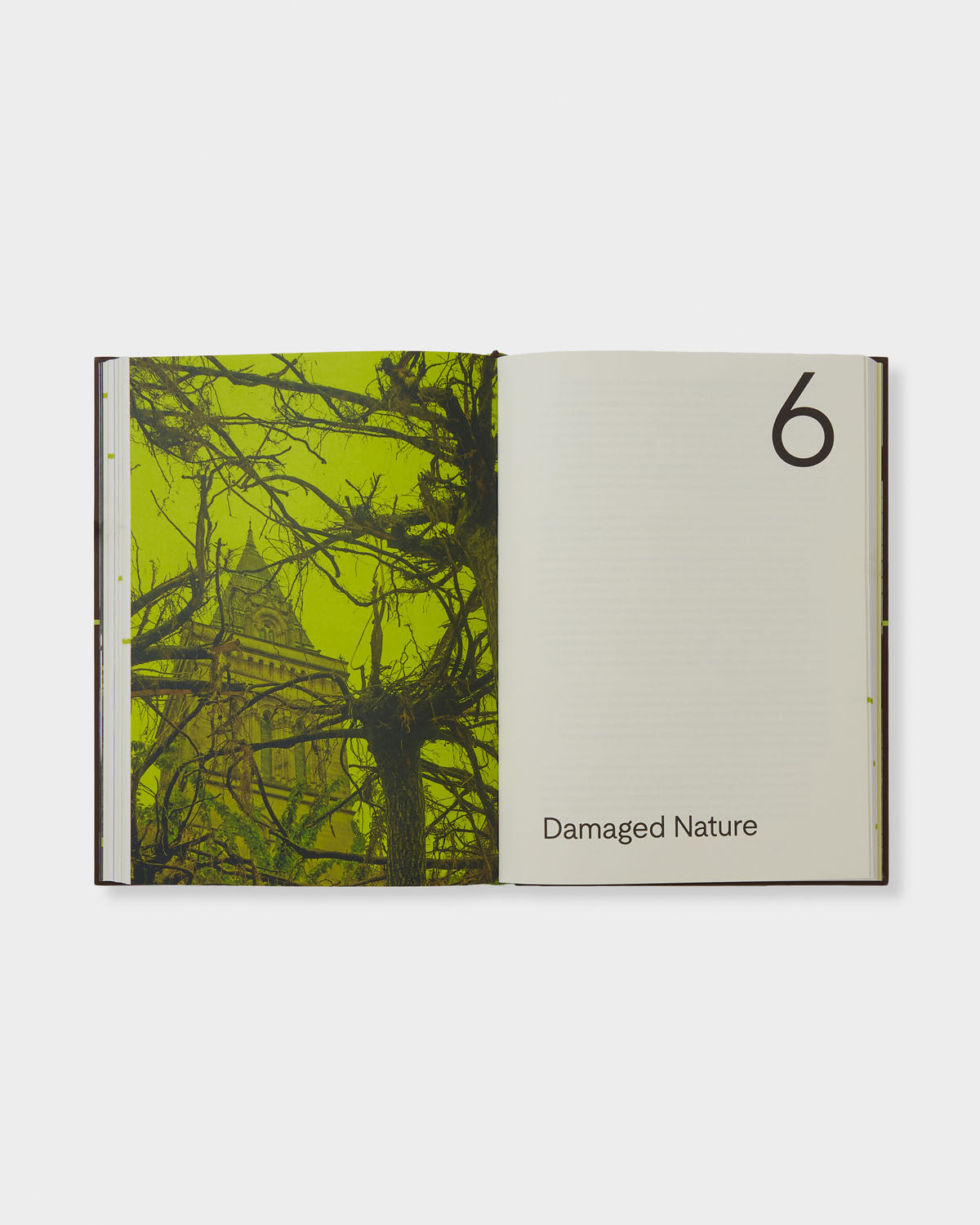
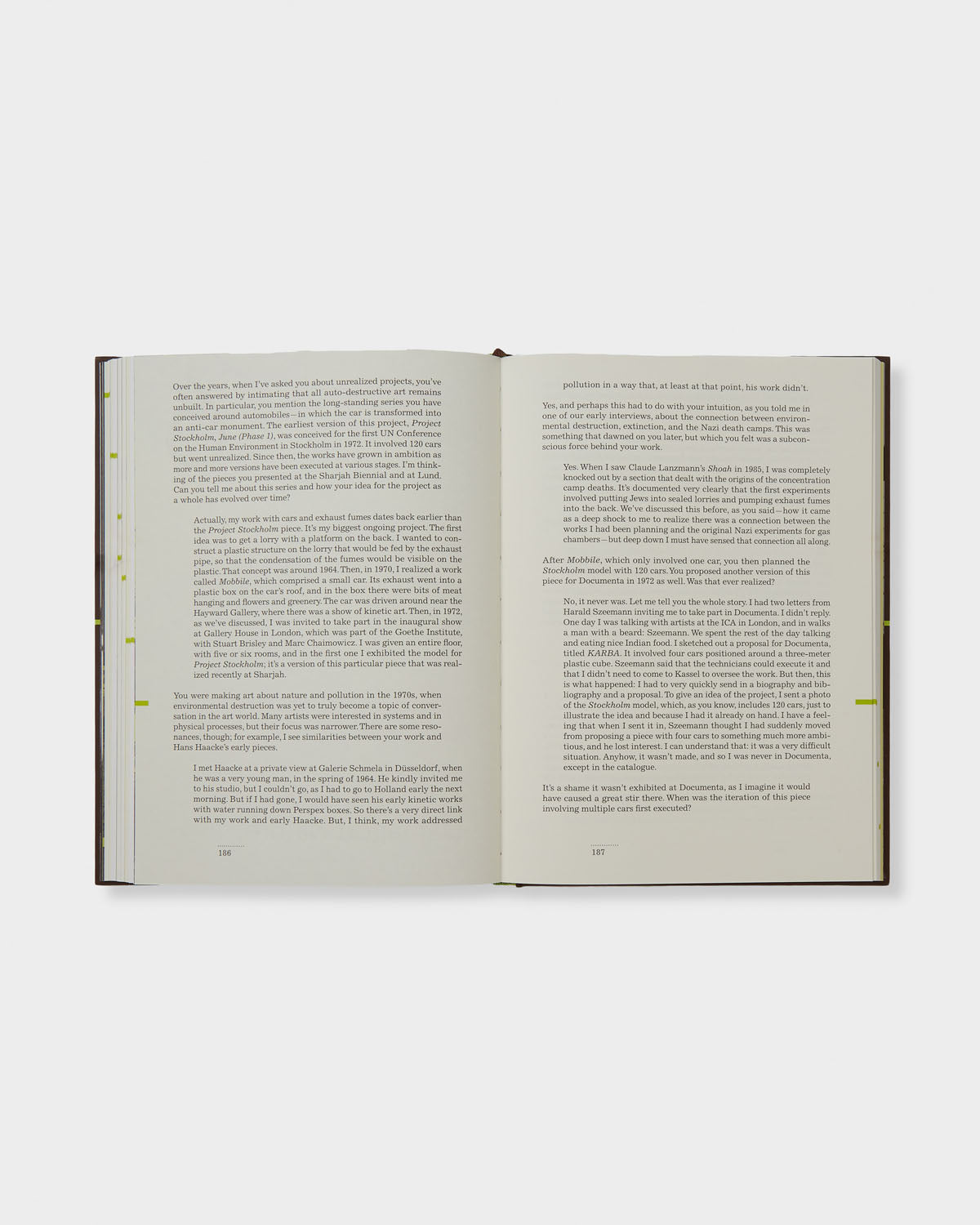
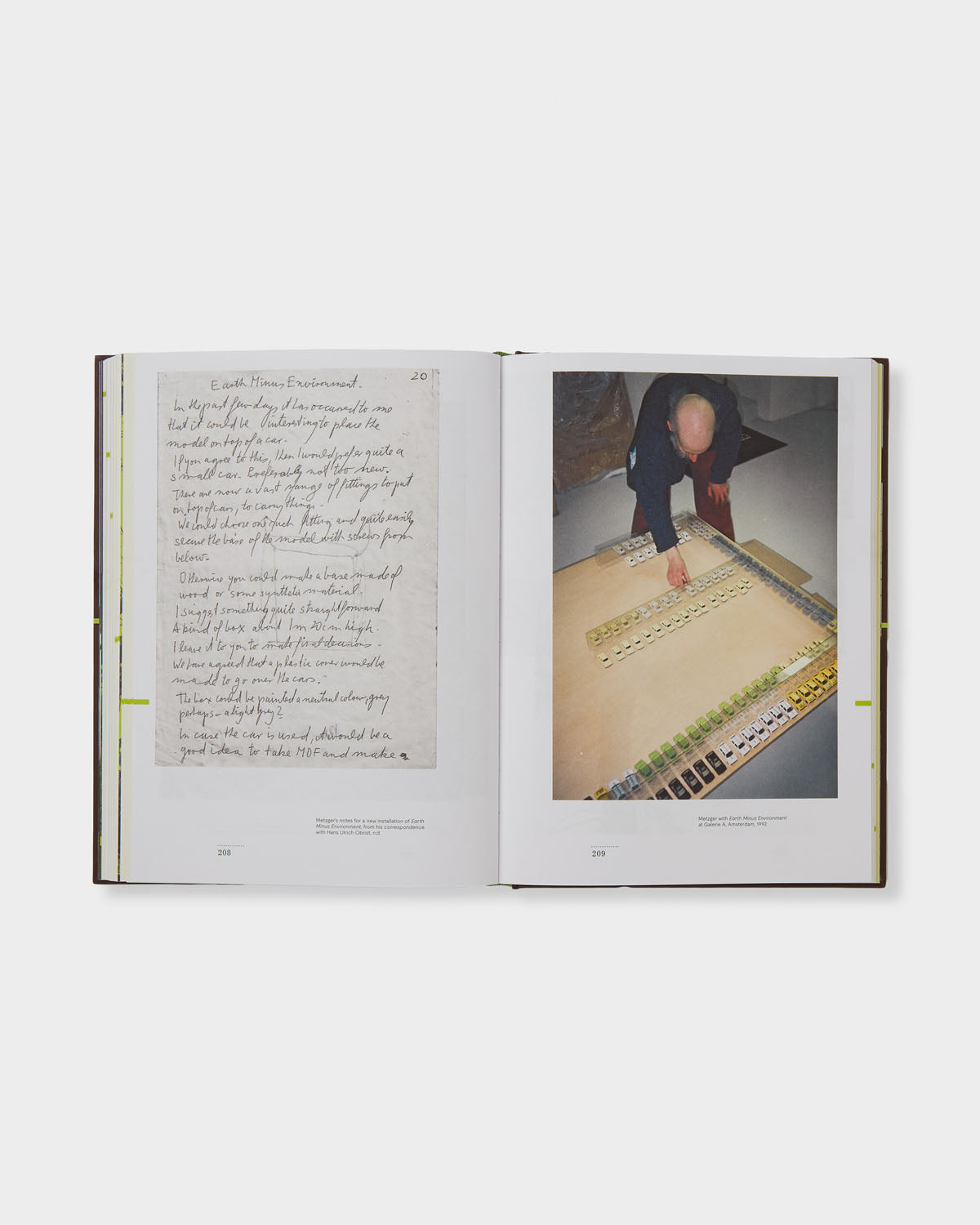
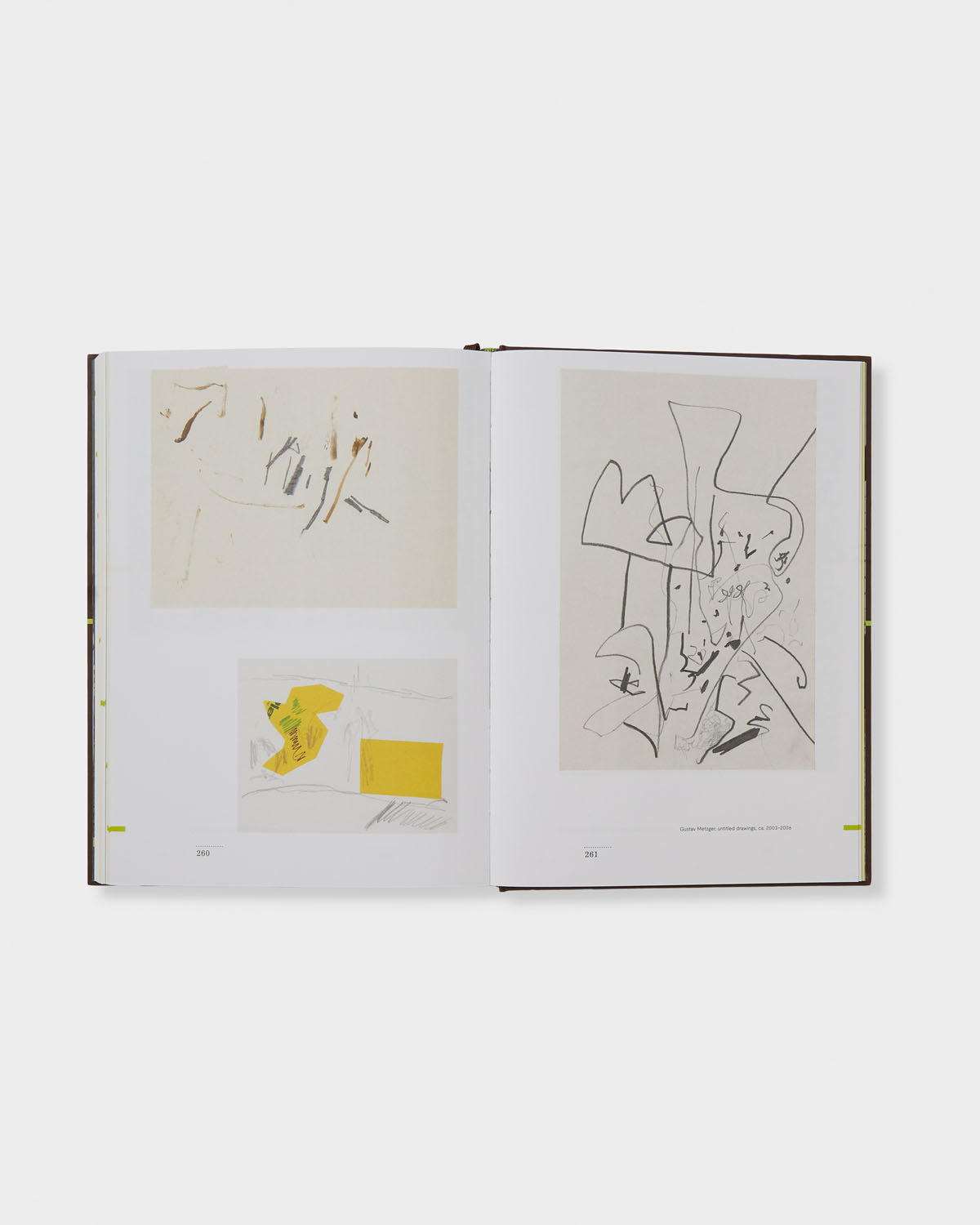
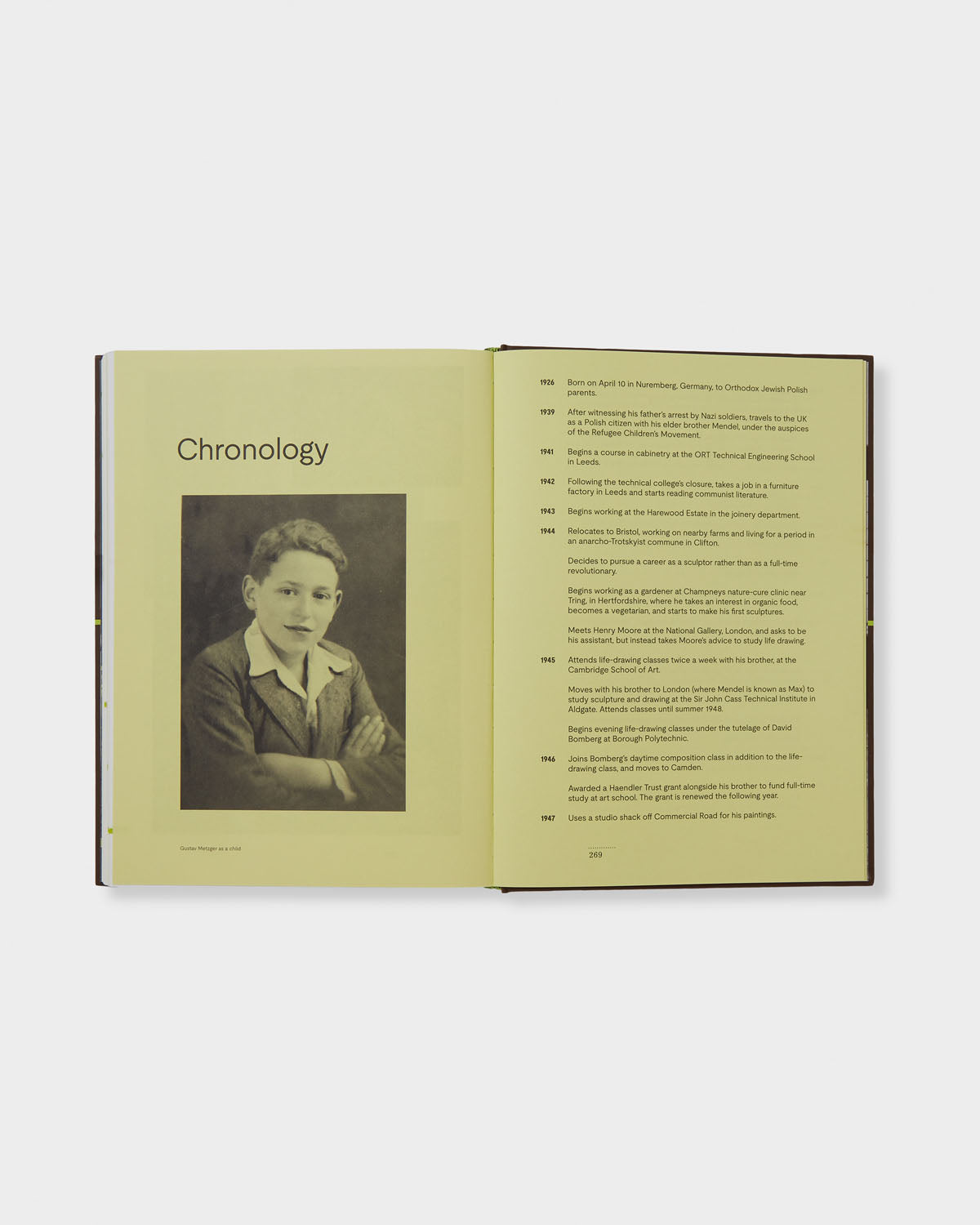
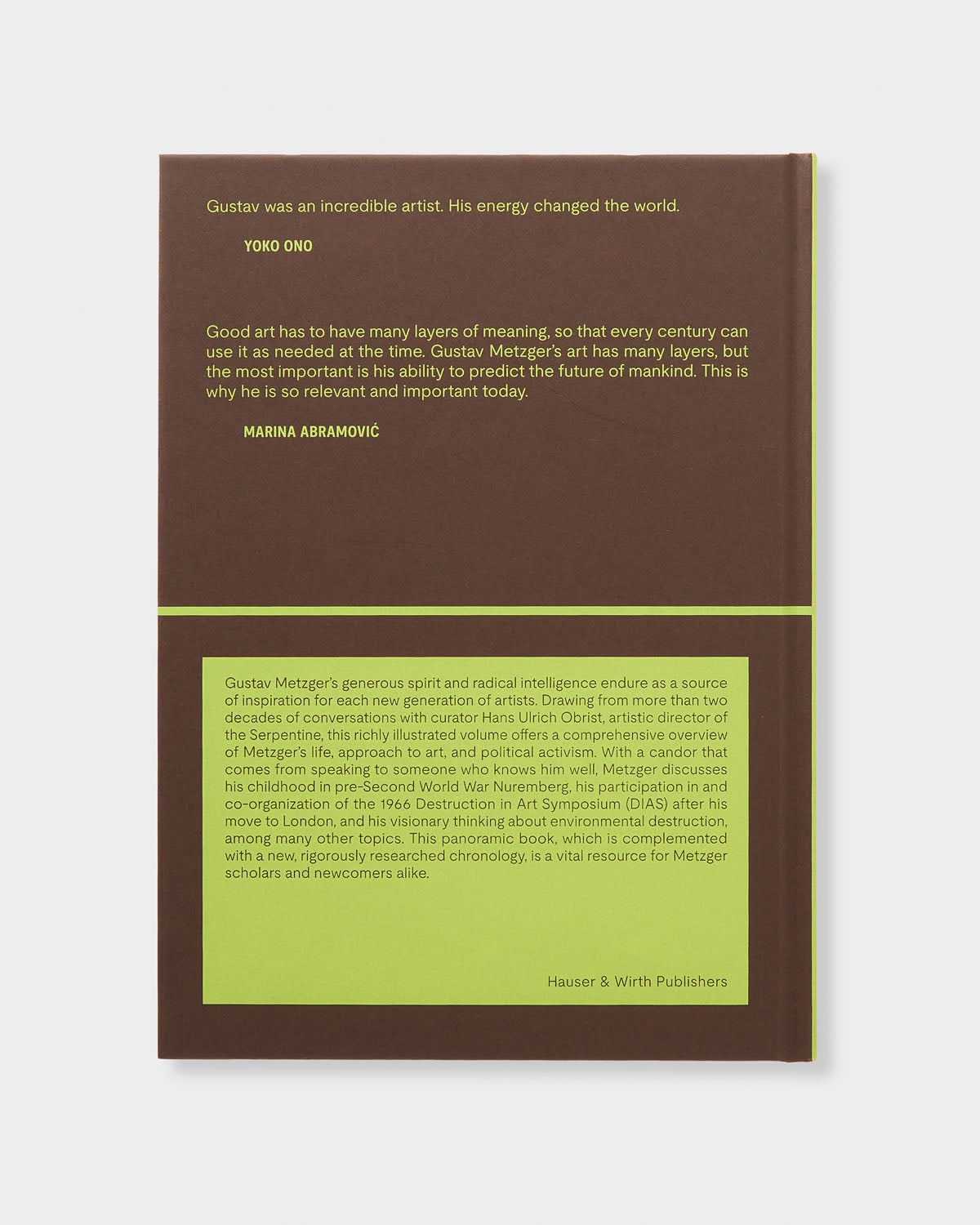
Gustav Metzger: Interviews with Hans Ulrich Obrist
Shipping & Returns
Depending on your location, items that you order may be shipped from the US or Europe.
We aim to deliver all orders within the UK / EU / US within 5 working days. Orders to be delivered to other destinations can normally be expected to arrive within 7 – 10 working days.
Shipping charges for all destinations will be calculated at checkout and included on your Order Confirmation.
For more information please review our Shipping & Returns Policy.
Choose options
















Gustav Metzger: Interviews with Hans Ulrich Obrist
Sale price$50.00
Regular price
Marina Abramović
Yoko Ono
Nicola Baird, Burlington Magazine
